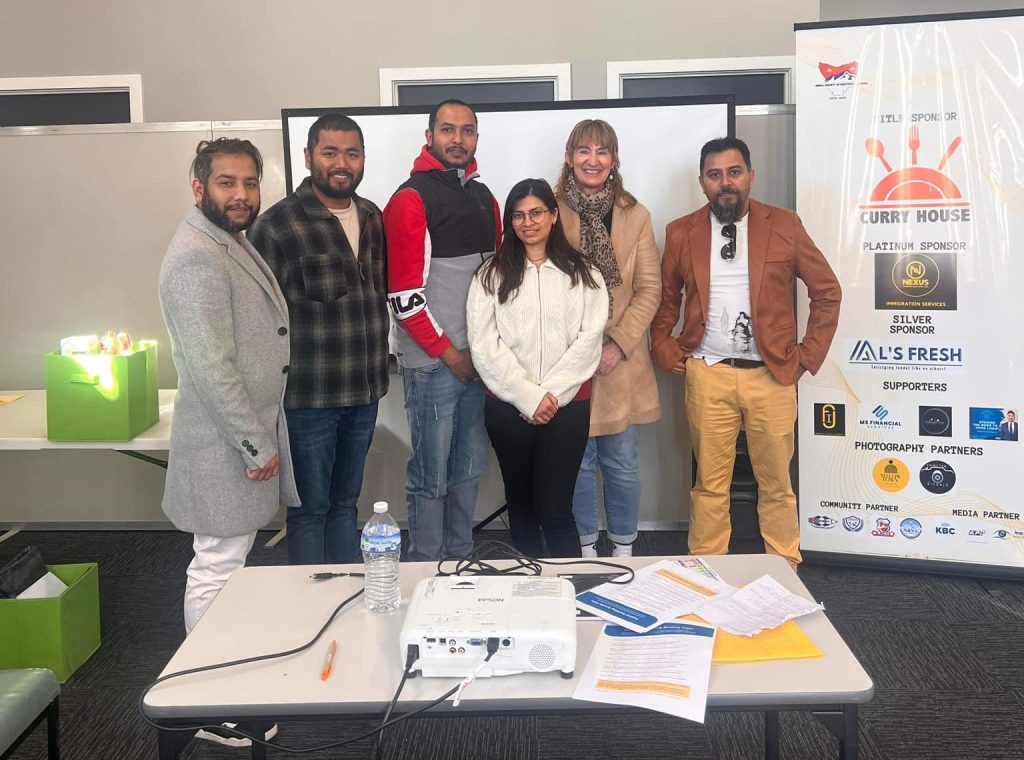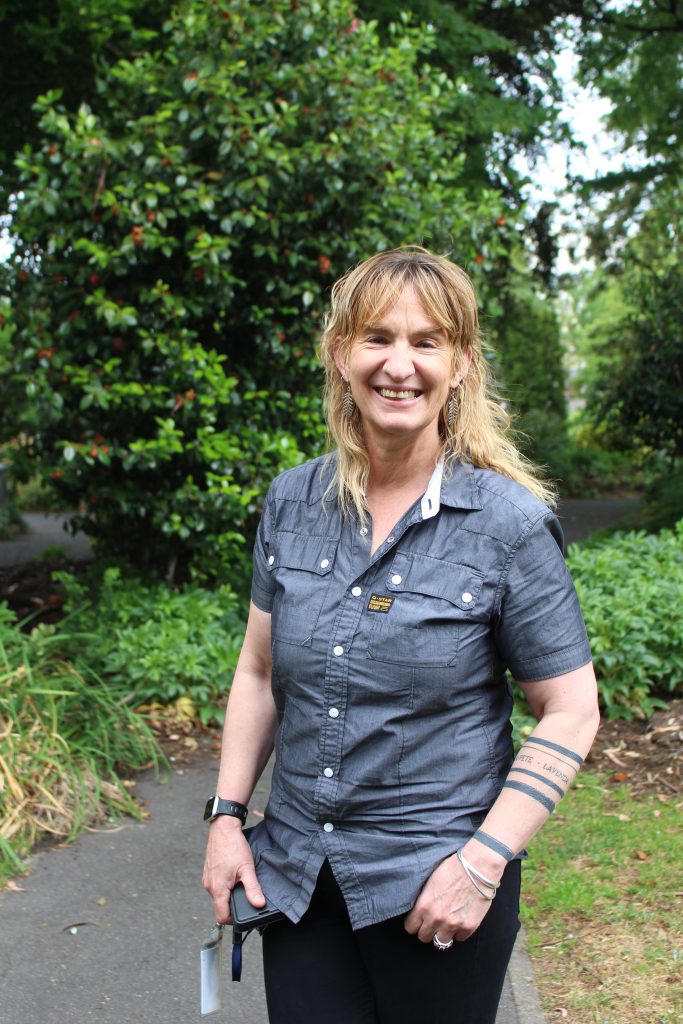Alcohol goggles and flashing lights – navigating addiction in Tasmania
Posted on August 8, 2025

How Anglicare is helping northern Tasmania’s Nepalese community members make informed choices in their new home.
In their new home of Launceston, the Nepalese community faces stark cultural differences, including Australian attitudes towards drinking and the dazzling yet dark world of gambling.
With the gambling industry’s sophisticated design aimed at maximising addiction, and openness towards alcohol consumption, the transition for newcomers can be particularly jarring.
To address these challenges and to prevent future possible addiction, the self-aware and proactive Nepalese community turned to Anglicare Tasmania for support.
Primary Health Tasmania has commissioned a number of organisations, including Anglicare, to provide alcohol and other drug services and programs in the north, north-west and south of the state. This education session was part of this funded work.
Anglicare’s gambling support-related initiatives, such as the Gamblers Help program, are separately funded by the Tasmanian Government.
Education sessions like this provide an important opportunity to talk about both alcohol and gambling addiction, helping people understand the risks and support services available.
Ruth Rowlands, an experienced alcohol and other drug social worker at Anglicare Tasmania, led this initiative.
The session was held just before the community’s most significant spiritual festival of Dashain. The 15-day Hindu festival celebrates good over evil and can involve eating, drinking, and playing games – sometimes with a little betting.
Rajan Shrestha, a key community member who took on the role of informal interpreter during the education session, highlighted the cultural importance of the festival and the associated risks.
“Note: It’s important to engage qualified interpreters for health consultations, visit Primary Health Tasmania’s Interpreter Guide on our website for more information, tasp.hn/working-with-interpreters.)
“During the session, we were concerned about gambling, and especially for all the parents and relatives who come here to visit their families around the festival,” he says.
“It’s pretty different. We don’t have the TAB and Keno and pokies. What people have is more like basically homemade games with money involved.
“Here, it’s on premises, so you can go and bet on any TAB.
“There are flashing lights and blasting music and everything. When we see all these new things, it’s human nature to be curious.”
The education session aligned with these cultural nuances and included information on what support was available and how to access interpreters.
Despite not using a qualified interpreter at this session, it is always best practice to use a qualified interpreter when accessing services.
Ruth employed a range of educational tools, including slides and data, to illustrate the impact of gambling in Tasmania.
“Ruth’s presentation had really good information and data on how common gambling is in Launceston and more widely in Australia,” Rajan says.
“People were really surprised to see how deeply gambling affects people here, sometimes leading to loss of all their property and savings.
“A few things were pretty new to me, with all the data explained, like the ratio of gambling and alcohol.”
Rajan says the group learnt about the Tasmanian Gambling Exclusion Scheme, where people can choose to exclude themselves from gambling venues.
“We also learnt about phone support, counselling and rehabilitation services in this state.
“It was good to hear that there are lots of useful services available to migrants, and that these are not just for local residents.
“The services can be accessed for free, no matter what visa conditions you have.”
Ruth discussed the addictive nature of gambling, emphasising how the sensory experiences of flashing lights and blasting music contribute to its allure and addictive qualities.
Education on practical measures to mitigate risks was also a focal point of Ruth’s presentation, focusing on harm minimisation techniques such as setting limits for gambling and pacing alcohol consumption.
“People were very engaged,” Ruth says.
“We have alcohol goggles and they mimic the effects of drinking, as if you had a blood alcohol reading of 0.02 or more.

“They did say they felt they were a little inebriated, even though they weren’t.”
The session was not just about disseminating information; it was also about empowering the Nepalese community to navigate their challenges in a foreign cultural landscape.
The discussions extended to understanding what a standard drink is and the health implications of excessive alcohol consumption, topics that many were unfamiliar with.
Ruth’s approach to these sessions highlights Anglicare’s commitment to community engagement and education, addressing not only gambling but also broader substance use issues.
“A lot of people associate Anglicare with aged care and acquired injury supports, but we also provide substantial support for alcohol and other drug issues,” Ruth says.
The impact of the session extended beyond just the attendees on the day. Through word of mouth and community discussions, the information provided by Anglicare is being shared throughout the community by participants.
“Even one person in my friendship circle attending is enough, to pass it along to the community,” Rajan says.
Ruth reflects on the broader implications of these sessions.
“It’s all about understanding the limits and knowing the resources available to help manage these activities responsibly,” she says.
“We want the community to know that while enjoying cultural festivities, there are ways to manage risks associated with gambling and drinking, and ensure that celebrations do not lead to long-term problems.”
This story features in Issue 20 of our Primary Health Matters magazine. Click here to read the rest of the issue
